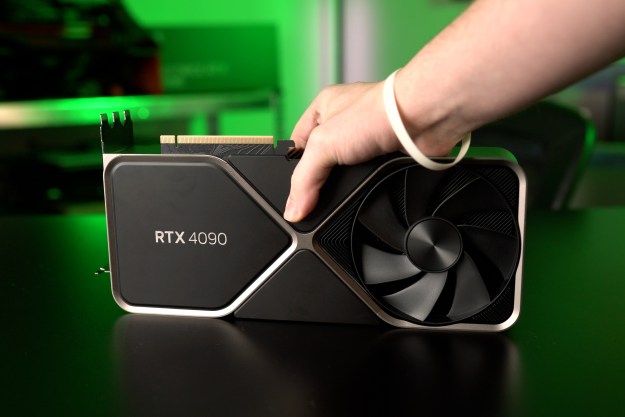Nvidia is expanding its Deep Learning Super Sampling (DLSS) feature on all fronts. The company announced 28 new games that will support the upscaling tech over the coming months, as well as drivers for the upcoming Windows 11 release and a new feature that could make games look better than ever.
DLSS is now supported in over 100 games, over a quarter of which were announced on Monday. Leading the lineup is Alan Wake Remastered, which is an updated version of the 2010 title from Remedy Entertainment that’s set to release on October 5. Nvidia claims up to a 2x performance improvement at

The other supported games don’t come with the same name recognition. Unlike previous DLSS announcements, this one is stuffed to the brim with smaller indie titles like Severed Steel, Cions of Vega, and Powerslide Legends. The wide adoption is on the back of Nvidia’s DLSS plugins for Unreal Engine 4 and 5, as well as Unity.
Unreal Engine and Unity are both free, enabling indie developers to use them without the upfront cost. In the past, Nvidia required developers to file an application and be approved to access DLSS. Now, the DLSS software development kit (SDK) is freely available, and developers can access the plugins through Unity and Unreal free of charge.
Although most of the new games aren’t AAA blockbusters, Nvidia’s latest driver supports several large current and upcoming titles. The latest driver supports the recently-launched Deathloop, as well as the upcoming Diablo II: Resurrected and Far Cry 6. This driver also comes with support for Windows 11 ahead of its October 5 launch.
The new driver brings support for DirectX 12 Ultimate features on Windows 11, such as Auto
Nvidia is continuing to expand DLSS with new games and broader support, but it’s also expanding the feature in another way. The company announced a new version of DLSS called Deep Learning Anti-Aliasing (DLAA) that’s debuting on The Elder Scrolls Online test servers starting on Monday.

In short, DLAA is DLSS with the upscaling portion removed. It still relies on Nvidia’s deep learning system in DLSS, but it uses that information for better anti-aliasing instead of upscaling. Nvidia says the new feature is for players “who have spare GPU headroom and want higher levels of image quality.”
The Elder Scrolls Online is the first game to support the feature. That said, it appears DLAA is based on the same backbone as DLSS, so more titles could receive support in the near future. Nvidia also announced DLSS for The Elder Scrolls Online, which is available in the game now. Like DLSS, DLAA is only supported on RTX 20-series and 30-series graphics cards.
This DLSS news comes as adoption for AMD’s FidelityFX Super Resolution (FSR) technology has slowed. Intel is likely putting some pressure on Nvidia, as well. The company is set to release its first add-in desktop
Editors' Recommendations
- Windows 11 might nag you about AI requirements soon
- You’re going to hate the latest change to Windows 11
- How I unlocked the hidden modes of DLSS
- In 2024, there’s no contest between DLSS and FSR
- As a lifelong PC gamer, these are the apps I couldn’t live without





